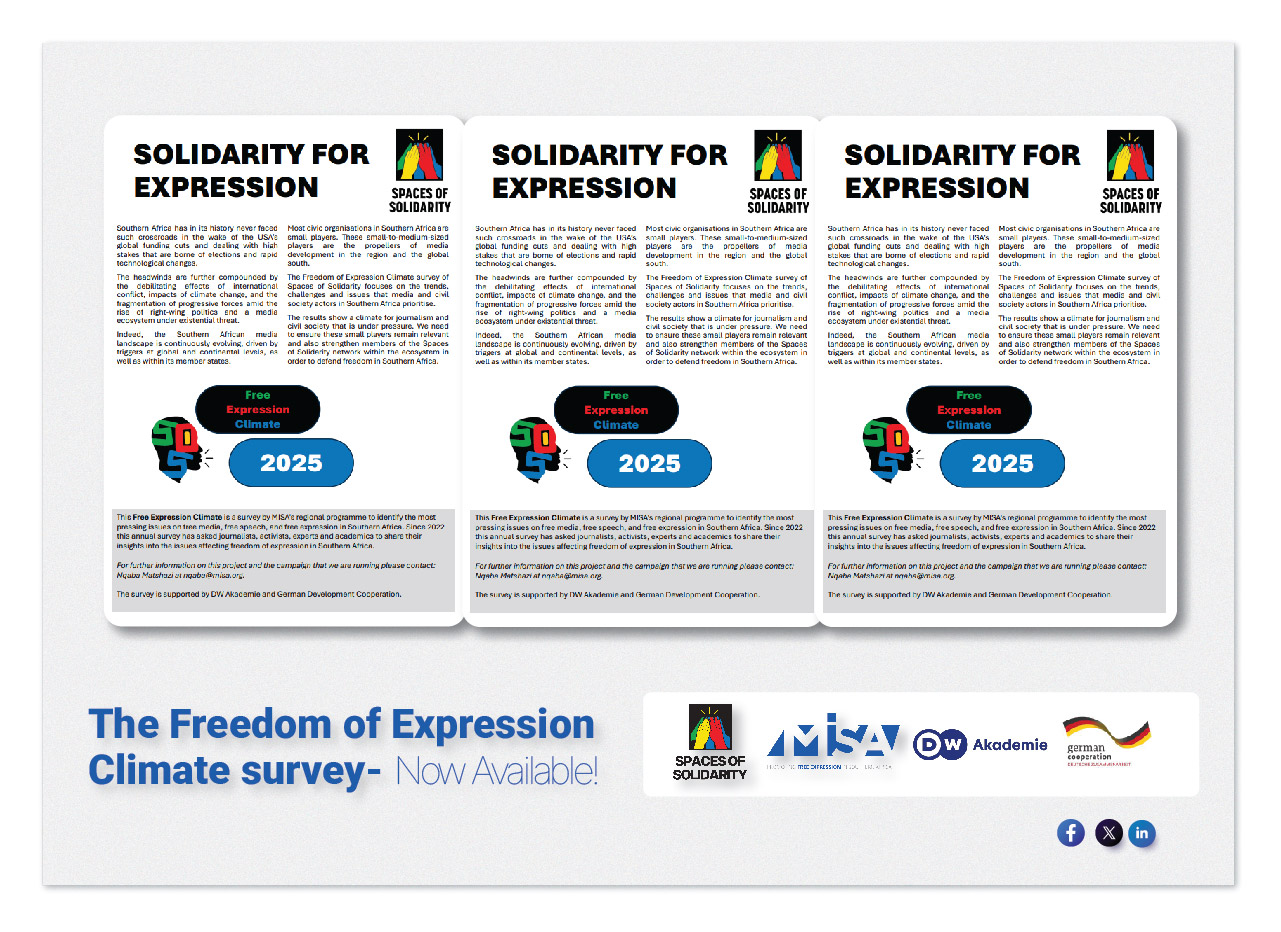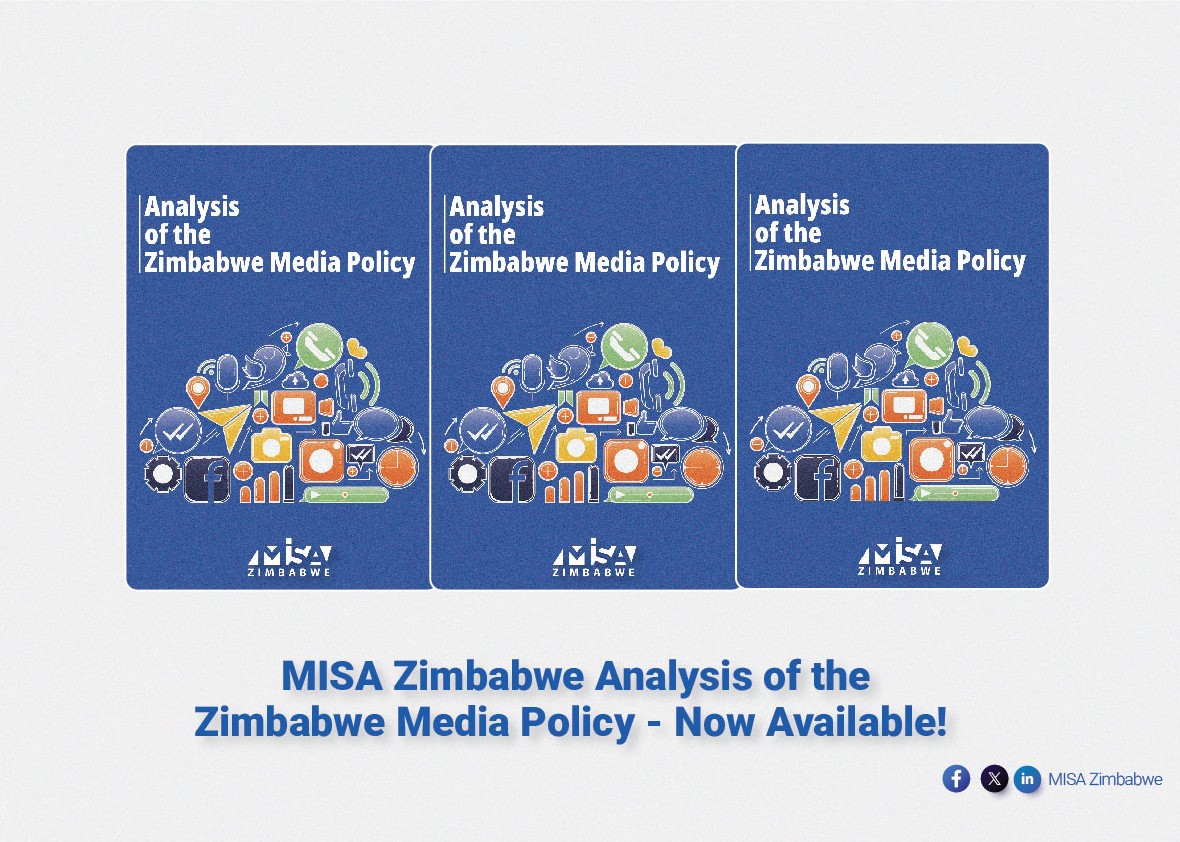In the past week, there were two major pronouncements by the Ministry of Information, Publicity and Broadcasting Services and the President that are media-related.
The two issues are on the ministry’s proposal that Treasury should finance the Zimbabwe Broadcasting Corporation (ZBC), so that it can perform its mandate and President Emmerson Mnangagwa’s address to the United Nations on the state of media law and policy reforms.
This commentary seeks to unpack these two developments and make recommendations on the same.
Ministry bid for ZBC to be funded through Treasury
Appearing before the Parliamentary Committee on Information, Publicity and Broadcasting Services, on the 26th of September 2019, the Permanent Secretary Nick Mangwana, informed the Committee that his ministry intends to table a bid for the state broadcaster to be funded through Treasury as it is drowning in debt and failing to meet its mandate.
The permanent secretary refuted the previous submissions by the former CEO of ZBC, Patrick Mavhura, that the entity is in the profit-making phase.
As MISA Zimbabwe, we urge the Ministry and the relevant portfolio committee to note that problems bedevilling ZBC are complex and cannot only be addressed through its debt assumption by the government and Treasury support. The KPMG report noted that ZBC has corporate governance, structural and viability challenges hence the need to implement the
recommendations of the report and fix the current challenges before recapitalisation.
While we are in agreement with the permanent secretary that the organisation is in dire need of recapitalisation, there is an urgent need for an overhaul of the entity so that the new revenue that will be injected into the corporation contributes to its sustainability and competitiveness as an entity.
Further, there have been countless court rulings compelling the broadcaster to transform into a public service and discharge its mandate in an inclusive, transparent and responsive manner so that it becomes a viable entity.
In this regard, MISA Zimbabwe takes this opportunity to comprehensively make broader recommendations towards improving ZBC’s content and accountability to the public while safeguarding its independence as guided by our Model Public Broadcasting Framework and the African Charter on Broadcasting.
MISA Zimbabwe calls for the following in transforming ZBC:
Purpose
ZBC must in practice be an independent body corporate, established to serve the overall public interest without interference from any quarter. In its bid to provide broadcasting services, it should ensure full respect for freedom of expression, promote the free flow of information and ideas, assist people to make informed decisions and facilitate and strengthen democracy.
Mandate
As part of its mandate, ZBC should among other key issues:
– Provide universal access to its services with its signal seeking to reach all corners of the country and ensuring and making services available in all the official languages of the country.
– Provide access to a wide range of information and ideas from the various sectors of society and reflect, as comprehensively as possible, the range of opinions on matters of public interest and of social, political, philosophical, religious, scientific and artistic trends.
– Report on news and current affairs in a way that is not influenced by political, commercial, or other special interests.
– Contribute to economic, social, and cultural development in the country by providing a credible forum for democratic debate on how to meet common challenges.
– Provide credible, quality and varied programming for all interests, those of the general public as well as minority audiences, children, women, the youth and those with disabilities, irrespective of religious beliefs, political persuasion, culture, race and
gender.
– Promote and develop local content.
Some of these responsibilities are clearly outlined in the Broadcasting Services Act’s Part 1 of the Seventh Schedule outlining programming requirements for public broadcasters. ZBC should thus uphold the law.
This statutory role was emphasised by then Deputy Chief Justice Luke Malaba, in the matter
of Majome v Zimbabwe Broadcasting Corporation (CCZ14/16) when he said:
“… the public broadcaster is required to act in an independent and unbiased manner in the selection and presentation of television and radio programmes. There is a provision
prohibiting the ZBC as a public broadcaster from acting in a manner that favours the viewpoints of one political party whilst shutting out, as a matter of policy, viewpoints of other political parties on matters of national interest.”
Independence
ZBC should have in place policies to ensure its protection from any form of outside interference or attempts to compromise its independence. This is particularly so in matters concerning the content of its output, its editorial policy, the times and manner in which its output is supplied and in the management of all of its other affairs.
Over the years, the monitoring of the public broadcaster by MISA Zimbabwe and other media freedom lobby groups have shown ZBC’s lack of editorial independence, partisan coverage or complete censorship of national events, in violation of the broadcasting law in particular Part 1(d) of the Seventh Schedule.
The Schedule compels ZBC to “provide news and public affairs programming which meets the highest standards of journalism, and which is fair and unbiased and independent from government, commercial or other interests.”
Governance
The governance of ZBC should be vested in a board of governors accountable to the public through parliament. The appointment process must be transparent and open and ensure participation by the public in the nomination of candidates.
The members of the board, when viewed collectively, should be persons who:
(a) represent a broad cross-section of the population of the country;
(b) are suited to serve on the board by virtue of their qualifications, expertise and experience in the fields of broadcasting policy and technology, broadcasting regulation, media law, business practice and finance, marketing, journalism, entertainment and education, social and labour issues;
(c) are committed to fairness, freedom of expression, the right of the public to be informed, and openness and accountability on the part of those holding public office;
(d) are committed to the objectives and principles of the public broadcaster.
Persons who are office bearers with the state or political parties or have business interests in the media industry should not be eligible for board membership.
To ensure participation of the public in and transparency of the appointment process:
(a) the parliamentary committee responsible for the broadcasting policy shall advertise the posts, call upon all relevant groups in society as well as individuals to nominate candidates, shortlist nominees and invite them for interviews in public hearings;
(b) an appointment panel of public as well as civil society representatives shall assist in the
process of selecting members of the board;
(c) parliament should strive to reach consensus in order to appoint a board that is not partisan and avoid abuse by any (or majority) political party.
The governance of ZBC is far from the ideal when measured against most of these parameters as the current board appointment process is politically compromised and lacks full public participation.
Public Complaints mechanism
In order to attend to such developments, Section 40 of the broadcasting law establishes a public complaints mechanism that members of the public can use to raise their grievances with the broadcaster. It is important that ZBC publicises and adheres to its code of conduct.
This will restore the public’s confidence in the broadcaster as a credible, ethical and professional source of information.
On the basis of its code, a public complaints unit, set up by the broadcaster, known and accessible to the public, should consider and resolve any complaints by members of the public against ZBC.
Most importantly, ZBC should be seen to comply with the findings of the complaints unit in order to inspire public confidence in the use of the complaints mechanism to address the broadcaster’s shortcomings.
Suffice to recommend to both the Ministry and Parliament, that the re-capitalisation of ZBC should be done in line with the court findings and rulings, successive election observer mission findings and recommendations, and above all, with the Constitution of the republic that reinforces editorial independence of the broadcaster.
President informs the UN that AIPPA was repealed
President Mnangagwa on 26 September 2019 made a bold statement pertaining to the state of the ongoing media law reform process,
“…the outdated media laws, Access to Information and Protection of Privacy Act and old
Public Order and Security Act have been repealed. New Laws in relation to these areas have
been enacted,” said the president.
For the record, the Access to Information and Protection of Privacy Act (AIPPA) (at the writing of this communiqué), is still in our statute books and there are no new laws that were enacted to replace it.
The Zimbabwe government has so far based its media law reform process on the need to repeal AIPPA. This law currently regulates three broad areas of law namely, access to information, data protection and regulation of the media industry.
The government conceded to unbundling AIPPA into three Bills, i.e. the Freedom of Information Bill, Protection of Personal Information Bill and Zimbabwe Media Commission Bill. To this end, two of these bills have been gazetted, namely the Freedom of Information Bill and the Zimbabwe Media Commission Bill. A Bill is gazetted by publishing it in a Government Gazette. Once published, the Bill is subjected to public hearings and tabling for debate in Parliament and the Senate. The gazetting of a bill is different from the enactment of the same.
MISA Zimbabwe, therefore, urges the new President to crack the whip for speedy implementation of media reforms that have been outstanding since the coming into being of Zimbabwe’s 2013 Constitution so that he can then duly address the people of Zimbabwe and the international community on the completion of the process.
Ends













